- S.D. Eibar ready for maiden La Liga outing
- SD Eibar stengthen ahead of debut La Liga season
- Can ‘Super Mario’ live up to expectations in Madrid?
- MAN IN THE GROUND – Brentford 0 – 4 Osasuna
- Historic Basque derby welcomes S.D. Eibar to La Liga
- Munich to Madrid, via Brazil – Tony Kroos
- Rakitic in Spanish Switch
- Can Spain find redemption in Rio?
- Viva Espana! A season of redemption for Spanish football
- From the old to the new: who can fill the void in years to come for La Roja?
Spotlight Season: Zarra reigns in Bilbao but the title goes to Madrid – 1949/50
- Updated: 16 July, 2012
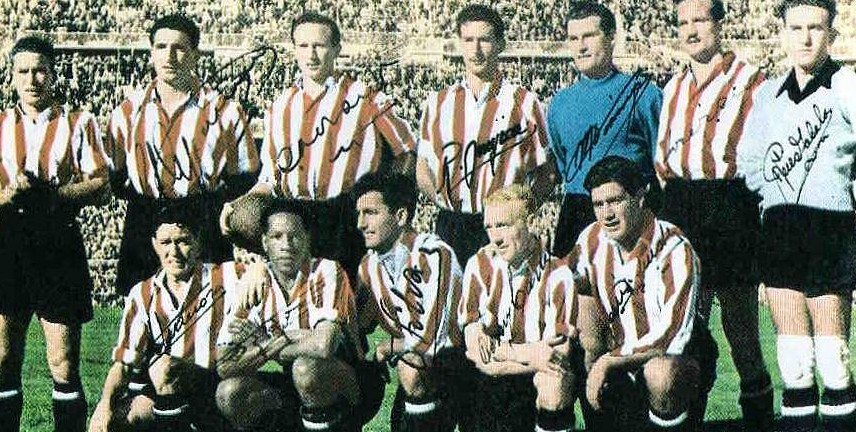
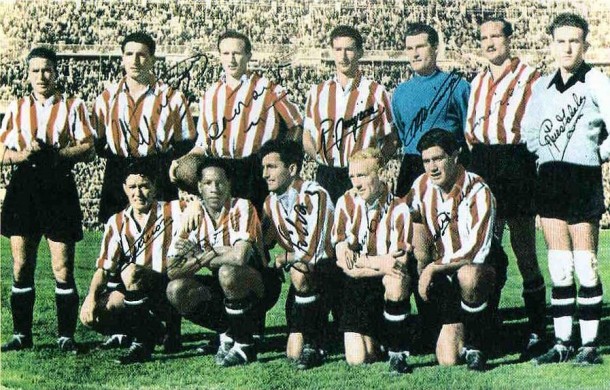
Background – In the ten seasons since the end of the Civil War, the La Liga title had been won by five different clubs. Contrary to popular belief, Franco’s ascent to power did not coincide with an immediate glut of trophies for Real Madrid. In fact the 1940’s were a time of slim pickings for Los Merengues, with just a couple of Copa del Generalísimo’s to their name.
In contrast, Athletic Club and FC Barcelona, clubs from regions that were experiencing great hardship under the fascist regime, would win four leagues and five copas between them during the forties. As the decade drew to a close, plans were afoot to expand the top division to 16 clubs. This would be the final season of a 14 team, 26 game format, but the participating clubs served up one of the most free-scoring and unpredictable championships in the history of the competition.
The Story of the Campaign – Barcelona had won the two previous championships, holding off strong challenges from Valencia, and both were expected to feature again. However, it was Athletic Club who made the early running, winning six of its opening seven fixtures. A 4-1 defeat in Week 8 at Espanyol saw Athletic drop from the summit and an unfamiliar name rise to the top of the table, that of Real Madrid.
Powered by the goals of Galician striker Pahiño and marshalled by a tight defence, Real Madrid lost just two of its opening 17 fixtures, before successive away defeats at the hands of struggling Real Oviedo and an improving Atlético Madrid saw them fall from the top. Atlético was coached by Argentine Helenio Herrera, and their 5-1 victory in the Madrid derby saw them head the table, level on points with another surprise package, Celta Vigo.
With two matches to play, any one of five clubs could conceivably win the league, with Atlético, Celta, Deportivo La Coruña, Valencia and Athletic Club separated by just two points. However, before the nation could get too excited, the league took a month off to allow the national team to prepare for their upcoming World Cup Qualifiers.
Matches of the Season – Upon resumption of the league, Celta Vigo and Athletic Club bowed out of the running following away defeats to Barcelona and Sevilla respectively. Entering the final week, Atlético held a one point advantage over Deportivo and two over Valencia, who would be their opponents in the final match. Valencia took an early lead thanks to a Igoa’s penalty, but two goals from Barek gave Atléti a 2-1 lead at half-time.
Up in Bilbao, Deportivo were not going to lie-down and they also had a half-time lead thanks to two goals from Rafael Franco. Atlético appeared to have sealed the title with further goals from Carlson and Mújica in the first few minutes of the second half. Things were also looking good at San Mamés as Athletic had drawn level. Then the match was turned on their head when Atlético lost their keeper Domingo and Mújica to injuries.
Valencia stormed back with goals from Igoa and Pasieguito. Then, with seven minutes to play, Igoa completed his hat-trick. Another goal for Valencia would see Los Ches crowned as champions, whilst a winner for Deportivo in Bilbao would see the title head to Galicia. Despite huge pressure, Atlético held on to claim their third La Liga title.
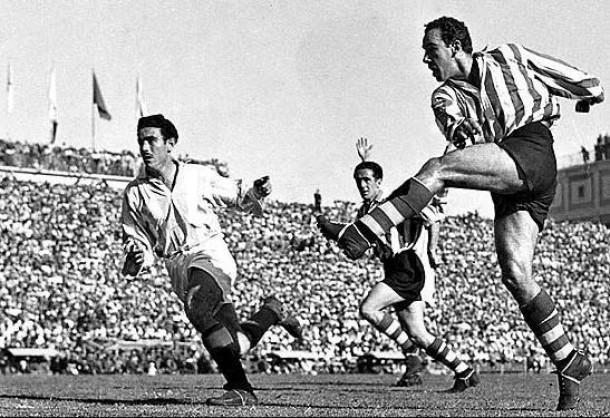
Extras – Due to the expansion of the league for the 1950-51 season, there was no automatic relegation for the bottom two clubs. Instead Gimnástico Tarragona and Real Oviedo faced a play-off against the teams that had finished third & fourth in La Segunda’s promotion play-offs. On 2 July 1950, CD Alcoyano beat Gimnástico 6-3 at Espanyol’s Estadi de Sarria, whilst Real Murcia beat Real Oviedo 2-0 in neutral Burgos. Athletic Club won the Copa del Generalisimo thanks to a 4-1 victory over Real Valladolid at Madrid’s new Estadio Chamartin.
For the Record – The 1949-50 season was a campaign for the forwards, with a total of 773 goals scored at an average of 4.25 per game. Sixth placed Athletic Club topped the charts with 72 goals scored, which was only 6 more than they conceded. However, Gimnástico’s incredibly porous defence allowed a total of 99 goals to enter their net, including ten at Barcelona and Celta Vigo. The calendar was littered with remarkable results, but perhaps the most extraordinary was Atlético’s 6-6 draw with Athletic Club at the Estadio Metropolitano, La Liga’s highest ever scoring draw.
Pichichi – Telmo Zarra won his fourth of a record six Pichichi’s thanks to his total of 25 goals in 26 games. Zarra spent 16 seasons at Athletic Club, scoring a total of 333 goals in all competitive matches. His tally of 252 goals in 278 first division matches is an all-time record. Zarra was capped only 20 times for Spain, but still managed to score 20 goals, including the winner against England in the 1950 World Cup. Zarra passed away in 2006, but is honoured by the Zarra Trophy, which is awarded to the highest-scoring Spaniard in La Primera.
Zamora – Marca did not set up the Zamora Trophy until 1958, but this season’s top goalkeeper was Deportivo’s Juan Acuña, who conceded 29 goals in the 22 matches he played. This was the third of four occasions that Acuña was recognised as the league’s top keeper in a career that spanned 19 seasons. Despite his pedigree, Acuña only played for the national side on two occasions.
The Clubs today – Eleven of the fourteen clubs will feature in the 2012-13 campaign, thanks in part to the recent promotion of Deportivo La Coruña, Celta Vigo and Real Valladolid. Real Oviedo and the renamed Gimnástic de Tarragona play in Segunda B, whilst CD Málaga was wound up in July 1992 with debts of over 200m pesetas.
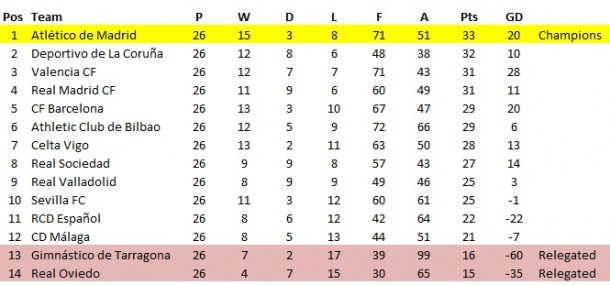

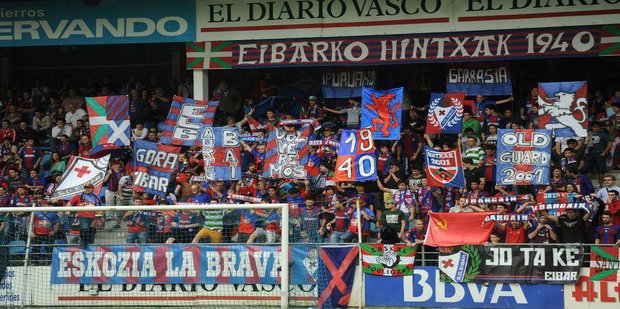

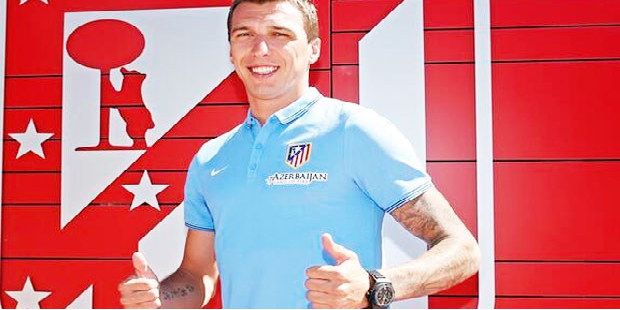


You must be logged in to post a comment Login